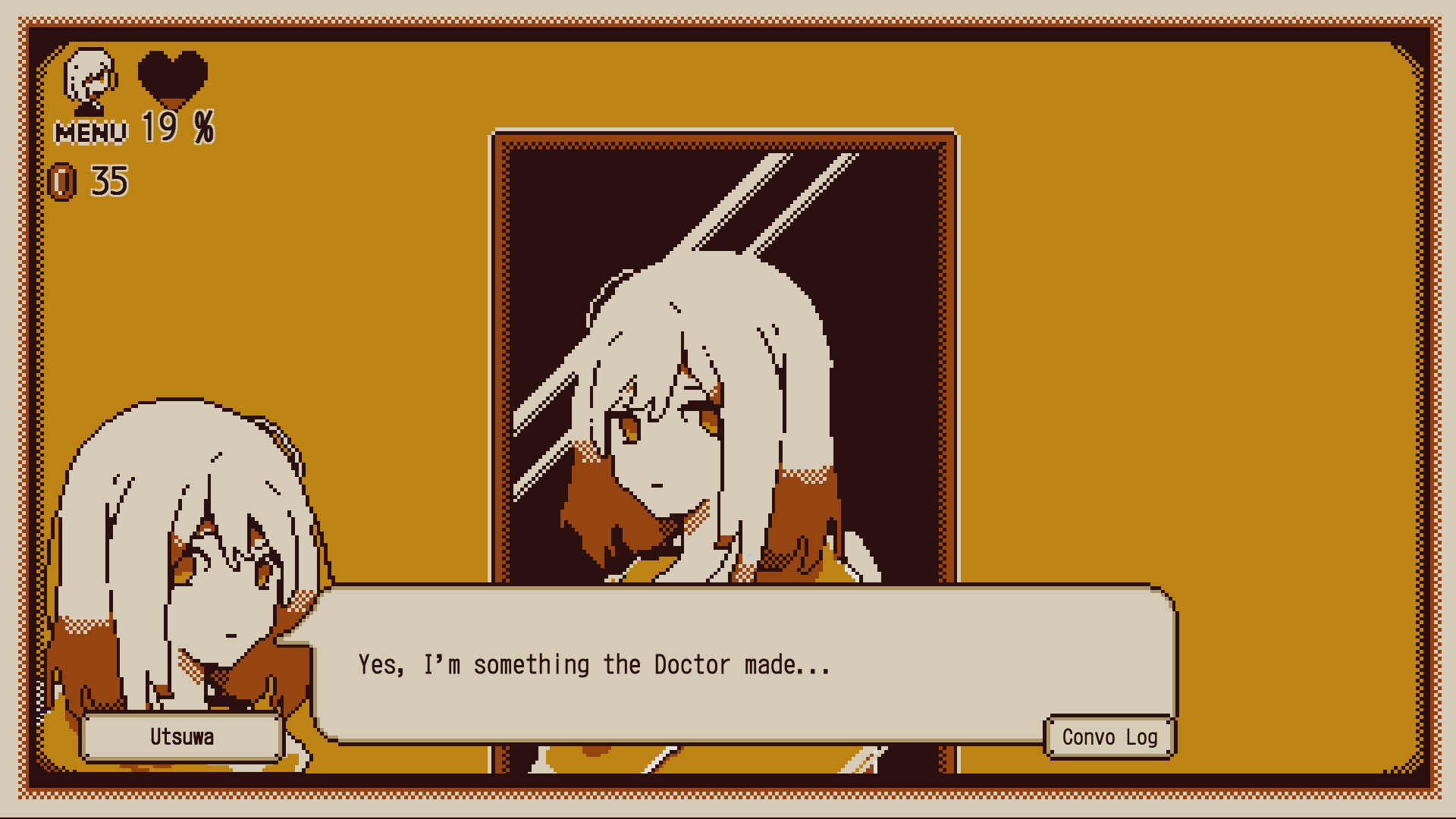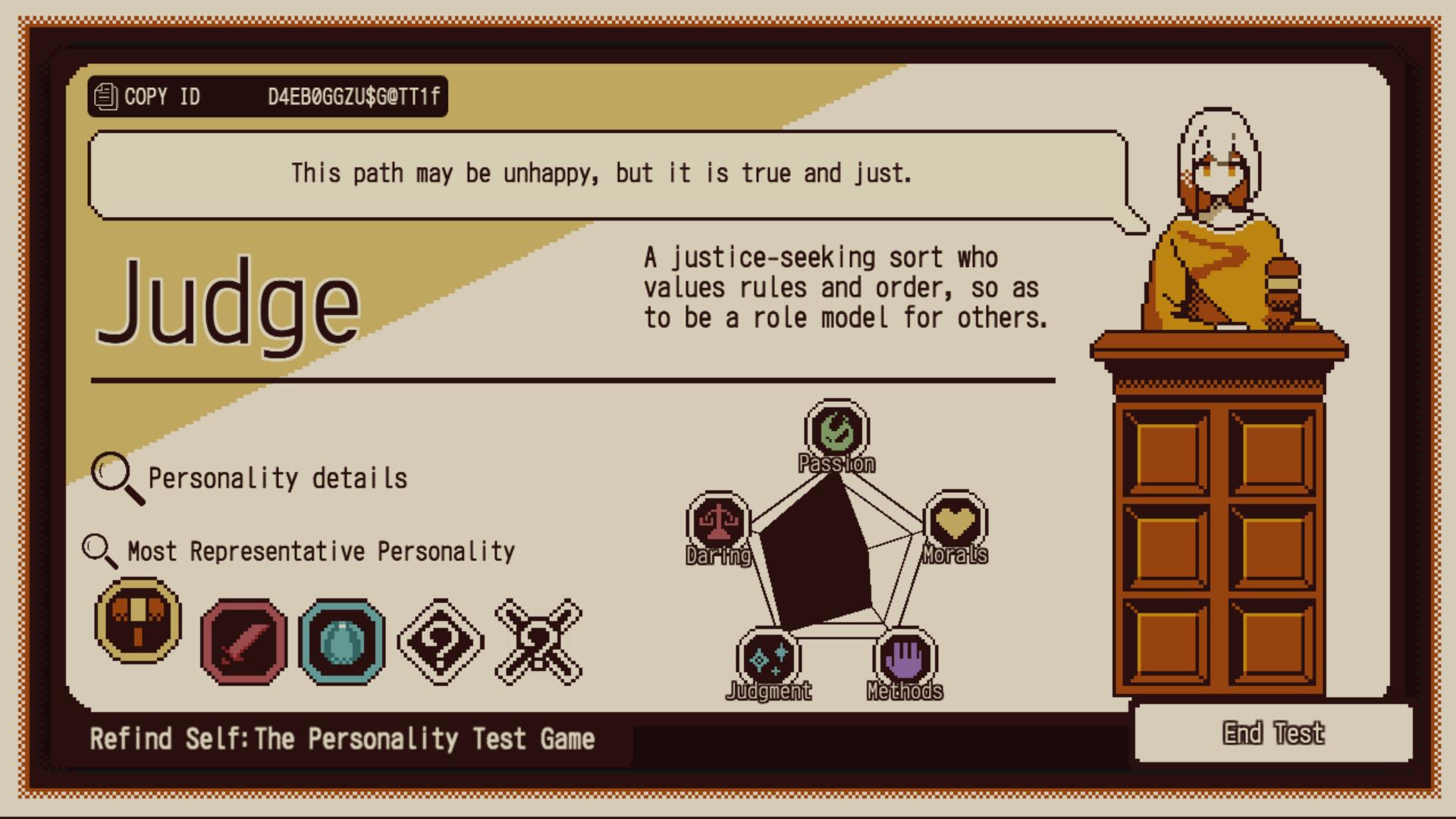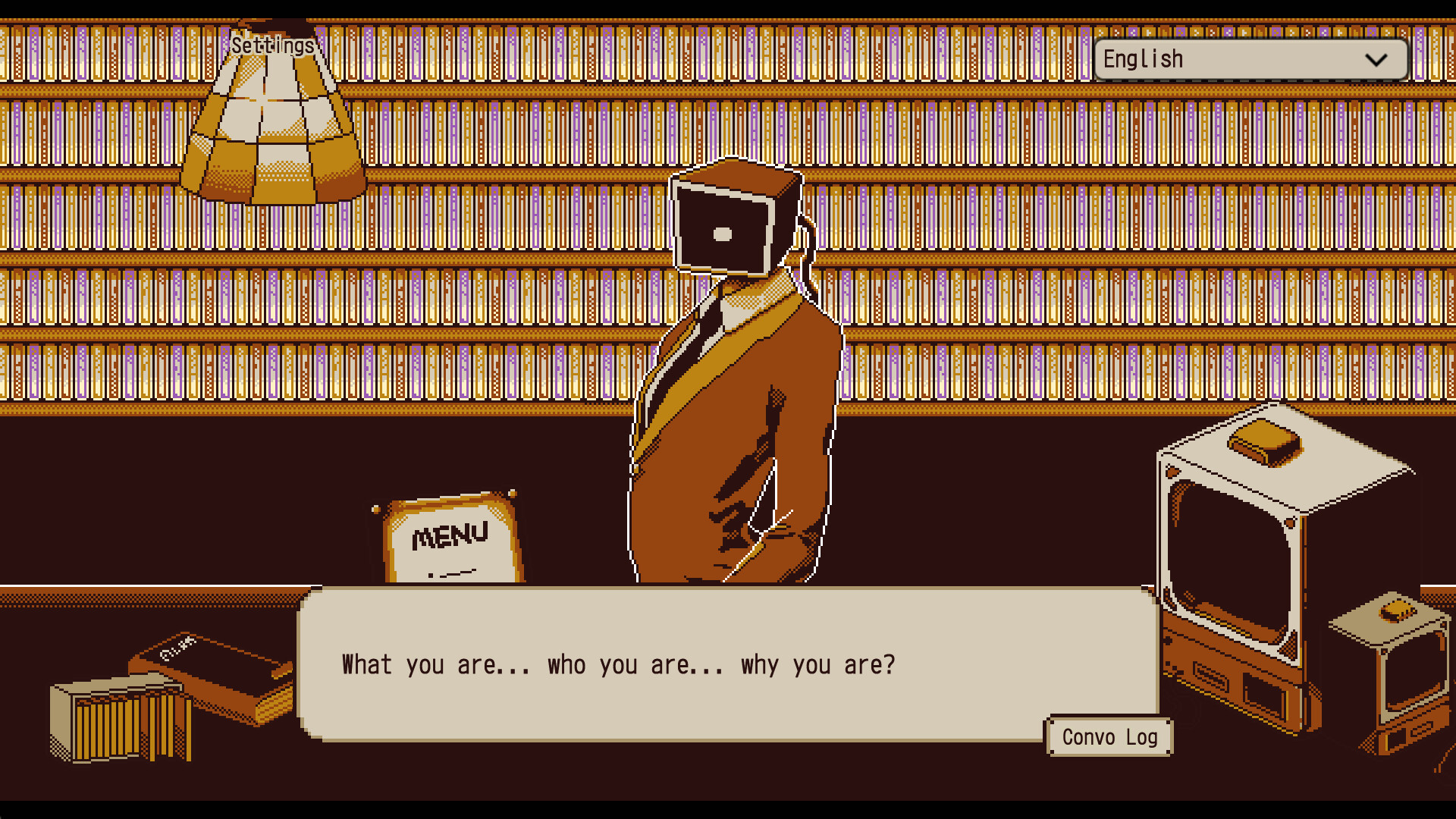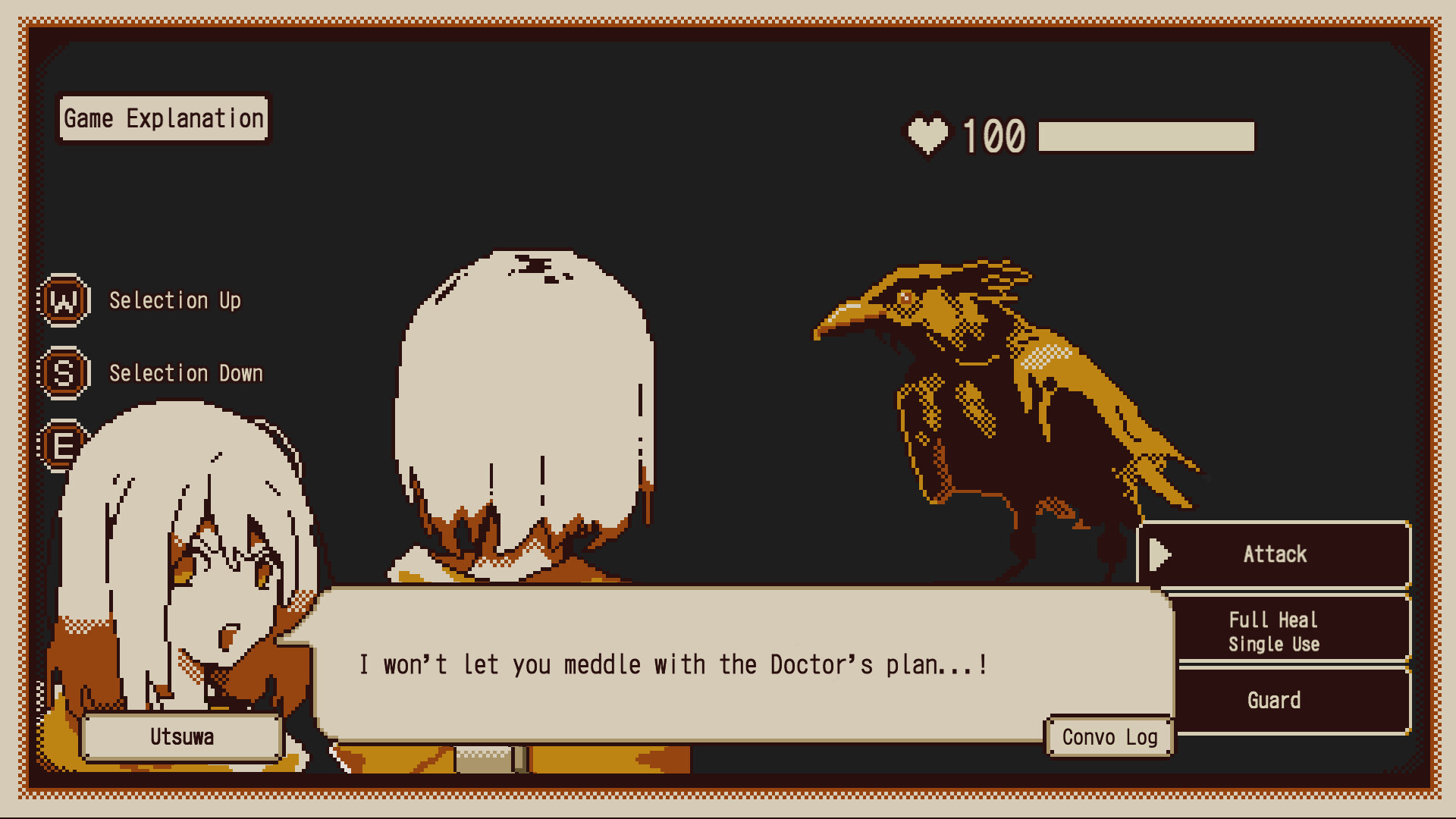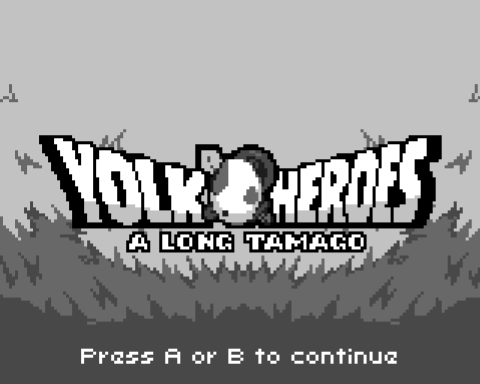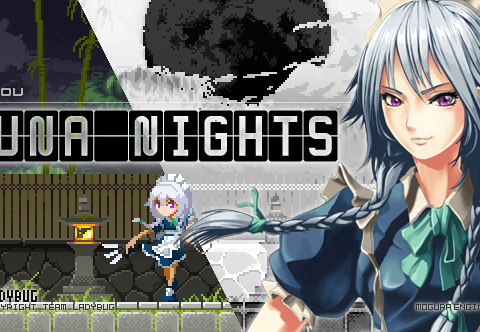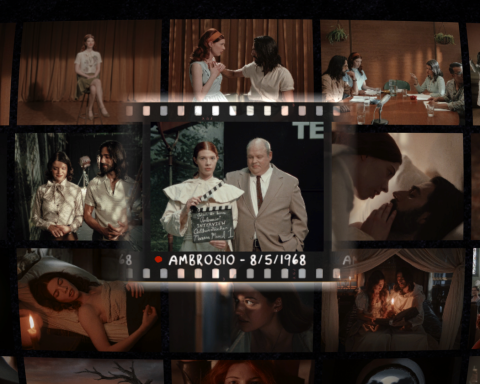Every so often I do that nonsense Political Compass test. It is nonsense and a generally poor way of reflecting your actual position on topics, but it’s fun to watch where the dot on the matrix moves around over time. And it’s fun to compare your results to how other people go. Refind Self is being sold as a game with similar appeal, but what I didn’t expect was that it was also quite the high-quality narrative experience.
Perhaps it’s unsurprising that a game that is all about profiling its players would offer an introspective narrative, but the melancholic and emotional story at the heart of Refind Self is a fascinatingly insightful one at times.
It works like this: You play as an android robot,and at you start the adventure standing at the grave of the professor that created you. From there you’re free to wander around a town and its environments, exploring, speaking to the denizens, and completing some tasks for them, while trying to understand what the professor was to you, and where their death leaves you. Every activity you take, however, adds to a percentage bar displayed on the screen. Once that reaches 100%, the story is done for you.
There is absolutely no way to do every action available over the course of a single run, and that’s how the game judges your personality. Do you pick up flowers that you come across, despite that trivial activity chewing up your precious time allotment? Do you waste time gambling (but potentially scoring some cute toys)? Do you chat up people, or do you try and simply escape town? Once that percentage reaches 100%, the game tallies the dozens and dozens of actions you took, answers you made to questions, and so on, and assigns you a personality.
The insights that this game provides are by no means scientific, of course, but it’s nonetheless fun to see the personality type that this game sees you as, and just like the Political Compass, there is still a small element of truth to it. I mean, the first time I played through Refind Self, the game determined that I was a “judge” which, in being honest here, is not an inaccurate assessment of my character.
Anyhow, to get a “complete” picture and analysis, you are supposed to play Refind Self through three times. Each play-through only takes an hour, and by doing different things in each “run,” you’ll have a significantly different experience. Each time it’ll be fairly affecting, though. This is because the real quality of Refind Self is the storytelling side, and the existentialism involved in the robot trying to learn what loss means, and then coming to terms with it. The art style is that of a downbeat monochrome, and that supports the storytelling tone perfectly.
Surprisingly, given how different the intent and direction of the respective games are, the thing that Refind Self reminded me most of was the classic, To The Moon. I wasn’t openly weeping by the end of a play through of this game, but I was left in a similarly pensive state. Refind Self doesn’t really have memorable characters, and the location won’t stick with you, but every line of efficient exposition is razor-focused at asking players to ask questions of the self and reflect on their mortality. It’s smart, sharp, and a textbook example of how non-linear interactivity can be used to drive towards a particular narrative outcome.
What I was less of a fan of was every time that the developers decided to put game elements into it. Scattered across the space are several minigames that you can play as some of your allotment of activities. The idea is fine, but unfortunately they’re not particularly well, and it’s in those moments that Refined Self goes from being the epitome of refined storytelling and reminds you that you’re playing “just” an indie title.
The worst of these is the JRPG combat minigame that pops up at the end. Not only is this a poor example of JRPG combat (which, I understand, is not the point of it, but it is, nonetheless mechanically weak), and it is also in the service of a surrealistic ending that takes the narrative in a direction that it never needed. For 55 minutes of the game to be brilliantly grounded, and the last 5 minutes to go off the rails is disappointing. Not enough to render the 55 minutes redundant, but in the end, it is the difference between this game and something like To The Moon.
However, for the most part, Refind Self is a compelling narrative experience. One that you might just learn something about yourself from in the process. It might not be scientific, but it’s one of the better pieces of introspection we’ve seen coming out of game development.
